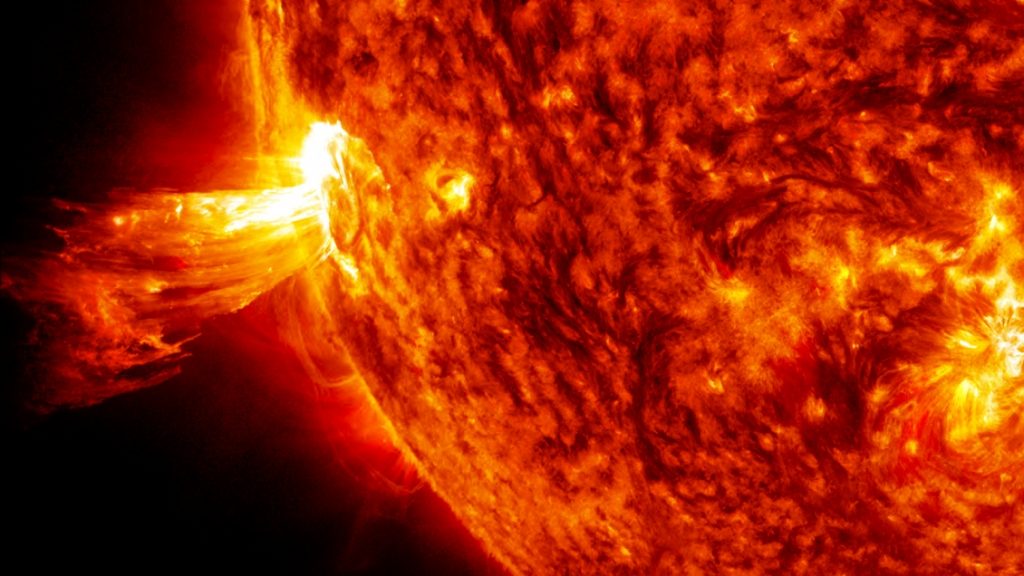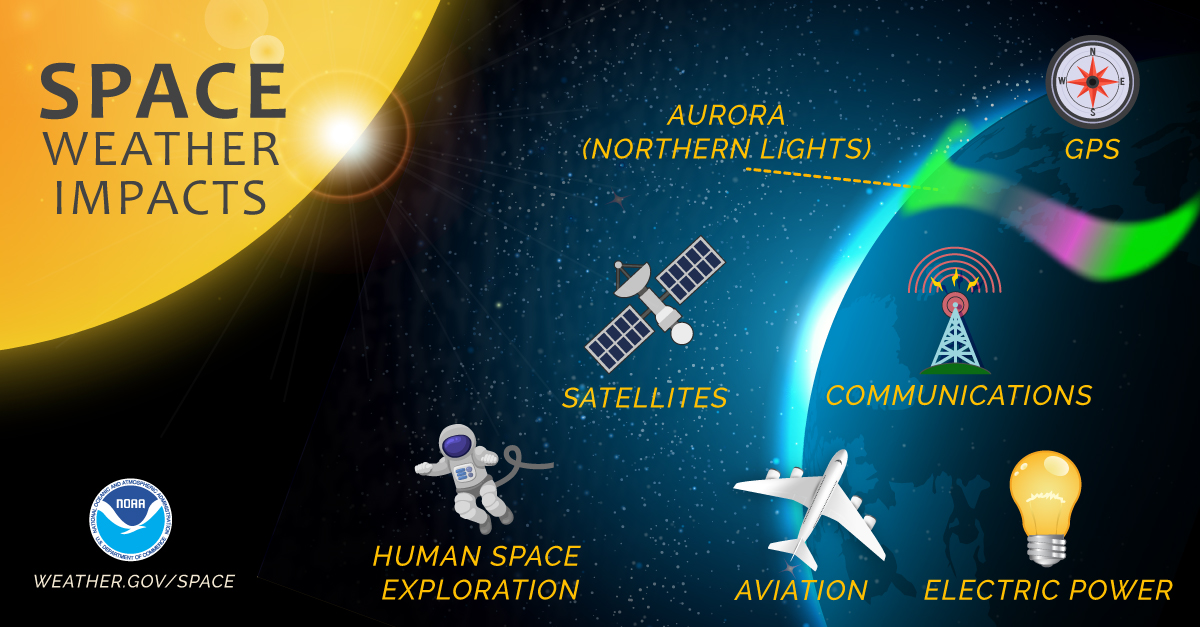Space Weather Could Cause Technical Glitches on Earth
The sun is about to enter a new cycle of activity such as solar flares. That could interfere with things like cell phone calls.

The next time your mobile phone drops a call, the sun could be to blame.
Solar activity, or “space weather,” can interfere with a host of things people use or depend on every day, such as cellular phones, satellite communication, GPS and electrical power systems.
The sun is about to enter a new cycle of increased activity, and scientists are keeping a close eye on it.
“It’s vital that we monitor space weather so that we can protect ourselves from the more extreme space weather events.” — Lisa Upton, co-chair of the Solar Cycle 25 Prediction Panel.
The Solar Cycle 25 Prediction Panel is comprised of public and private sector scientists, including Lisa Upton of Space Systems Research Corp. in Alexandria, Va. She co-chairs the panel, and says the sun is very dynamic.
“There’s a constant stream of particles coming off the sun,” Upton says. “This is known as the solar wind.”
Click on the player above to learn about space weather and how it will affect your fall.
Upton says fluctuations in the solar wind, as well as massive storms called coronal mass ejections, can cause geomagnetic storms on Earth. She says the planet’s magnetic field protects it from the brunt of these solar particles.
“But it can still cause disruptions to power grids, satellites in orbit and even astronauts in space,” Upton says. “It’s important that we monitor space weather so that people outside the protection of Earth’s magnetic field can be protected and so that we can also protect these very expensive assets in space.”

Upton says forecasting and predicting these events will be critical to planning the country’s return to the moon. NASA’s Artemis program aims to be the first to put a woman on the lunar surface by 2024.
Congress has sent legislation to President Trump to strengthen the nation’s ability to predict space weather and minimize its impact on Earth.
Space weather vs. our weather
Just as the National Oceanic and Atmospheric Administration monitors events such as hurricanes and tornadoes through the National Weather Service, it also tracks what’s happening on the sun through the Space Weather Prediction Center. But while the sun affects day-to-day weather conditions on Earth, Upton says there’s little evidence that solar weather has much impact on climate change.
“Bigger change to our climate tends to happen from the fluctuations in the tilt of Earth’s orbit as it moves around the sun,” she says. “This can cause subtle changes that are responsible for the comings and goings of ice ages. But the warming we’ve seen over the last few decades is much too rapid to be linked to changes in the orbit and too large to be caused by solar activity.”
Trusted, accurate, up-to-date
WDET is here to keep you informed on essential information, news and resources related to COVID-19.
This is a stressful, insecure time for many. So it’s more important than ever for you, our listeners and readers, who are able to donate to keep supporting WDET’s mission. Please make a gift today.
